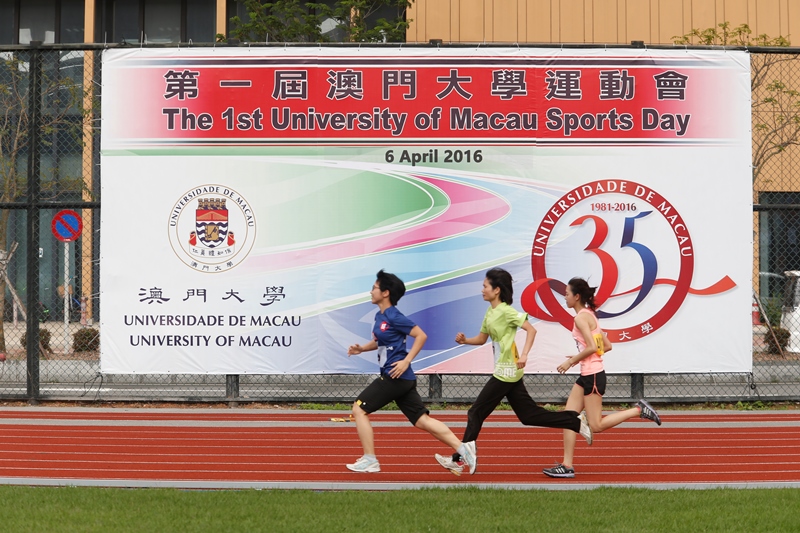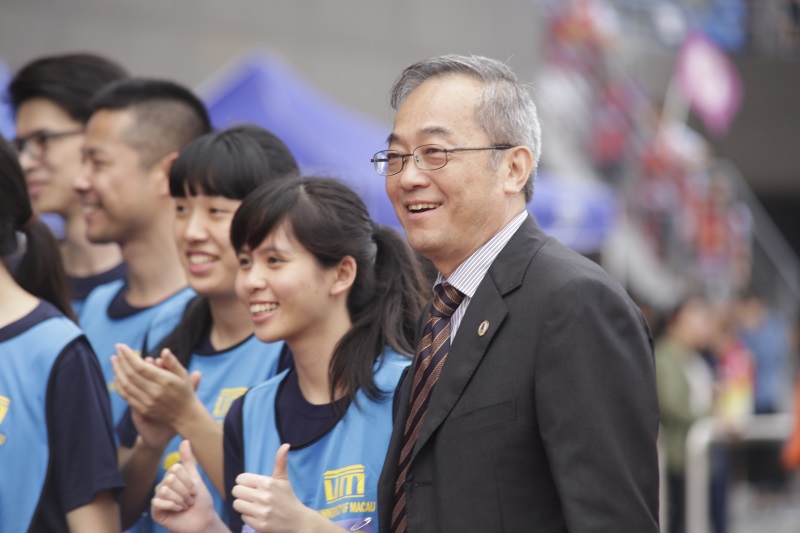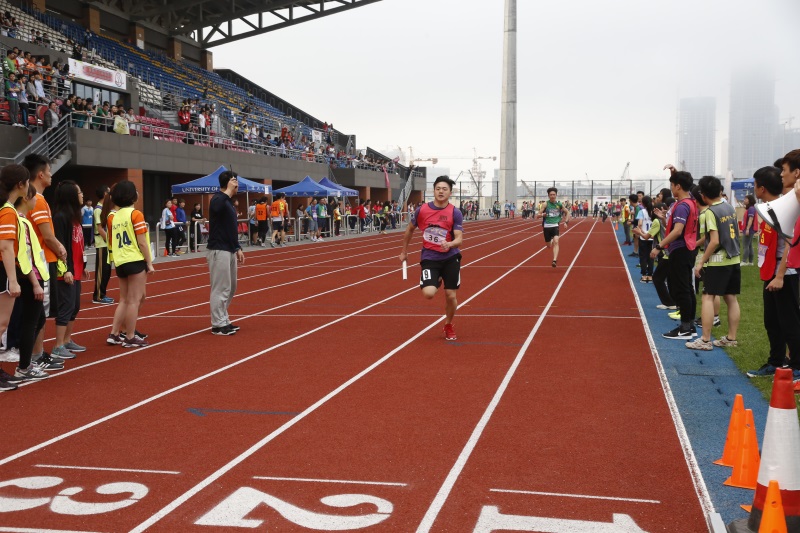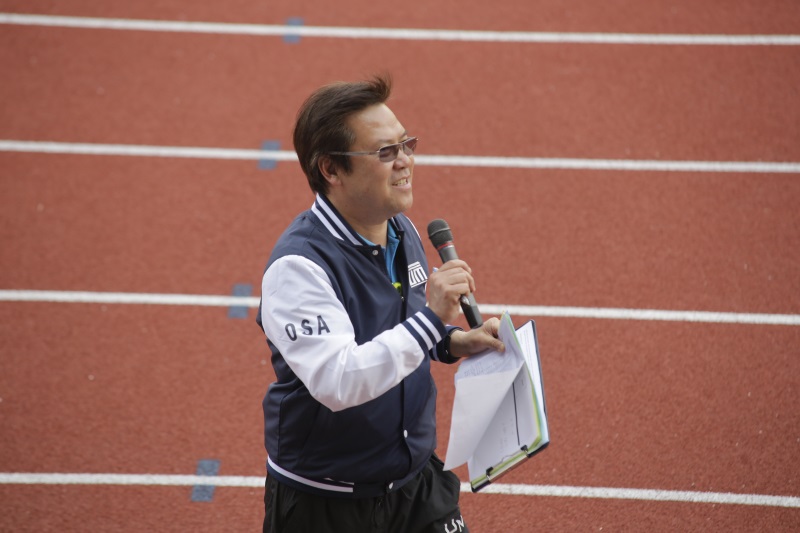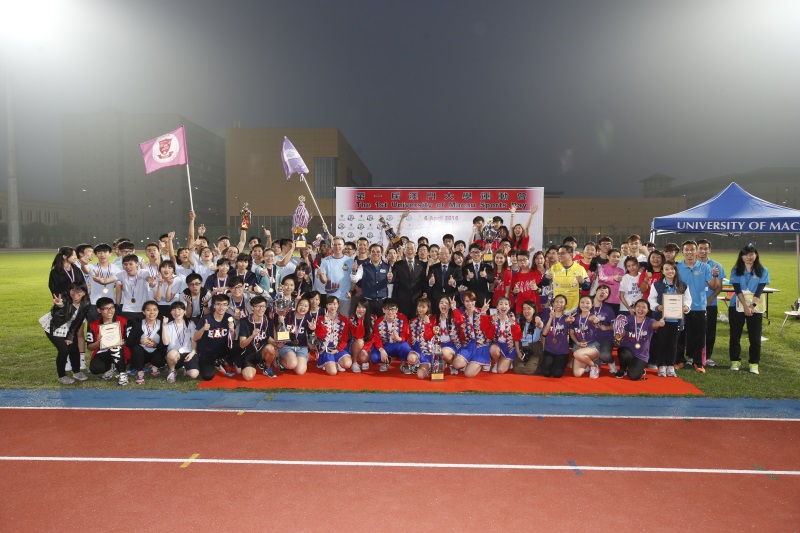In recent years, student athletes from the University of Macau (UM) have achieved impressive results at local and non-local competitions. These results are in part due to the better sports facilities on campus and the university’s ‘4-in-1’ education model, which is designed to help students achieve well-rounded development. In April 2016, UM held its first Sports Day, with the aim of encouraging more students to participate in sports. In this issue of umagazine, UM’s Vice Rector for Student Affairs Haydn Chen and Office of Sports Affairs Director Patrick Chan discuss UM’s efforts to train student athletes through university-wide physical education. We also tell the stories of several student athletes, who share with us how the university’s commitment to physical education helped them discover their athletic potential and achieve well-rounded development.
Encouraging Every Student to Participate in Sports
UM’s 18 sports teams are ranked among the top at local inter-varsity competitions. Thanks to better sports facilities and team management, UM has made steady progress in recent years in inter-varsity competitions at local, regional, and national levels. Between the start of the 2014/2015 academic year and the first semester of the 2015/2016 academic year, UM athletes won 101 awards at local and national competitions, including fencing, rock climbing, swimming, tennis, and track and field competitions at national level; as well as badminton, basketball, fencing, football, swimming, table tennis, volleyball, and track and field competitions at local level.
In 2008, UM launched a ‘4-in-1’ education model, which consists of discipline-specific education, general education, research and internship education, and community and peer education. The fourth component, community and peer education, identifies five areas of competency, one of which is ‘Healthy Living’. To achieve the ‘Healthy Living’ goal, students are encouraged to improve their physical and mental wellbeing and cultivate positive attitudes and personality traits through sports. Also, the university has added general education courses in physical education to the undergraduate curriculum.
Prof Haydn Chen, UM’s vice rector for student affairs, believes that sports play an important role in students’ personal growth. ‘Participating in team sports benefits students in many ways. It has a positive influence on their character and intellectual development, improves their physical wellbeing, and helps them develop teamwork skills,’ he says. ‘Playing sport also allows students to develop various soft skills, such as perseverance, patience, self-discipline, endurance, compassion, courage, honesty, obedience, leadership skills, mood management skills, teamwork skills, communication skills, and so on. When you participate in a sport, you need to endure pain, pick yourself up after a fall, be self-disciplined, obey the referee, and manage your mood. These are not what you could learn in a classroom.’
UM hopes to help students discover their athletic potential and achieve good results. But more importantly, it hopes that the good example set by outstanding athletes will motivate more students to participate in competitive team sports. ‘How do we encourage more students to play sport? How do we help students cultivate a lifelong sporting habit? These are some of the most important questions physical education seeks to answer,’ says Prof Chen. ‘Physical education is also an important dimension of holistic education. We encourage students to participate in sports competitions, not for the purpose of winning, but for the purpose of cultivating a lifelong sporting habit.’
Devoting More Resources to Training Student Athletes
As part of its efforts to promote physical education, UM established the Office of Sports Affairs (OSA) in 2013. One of the main tasks of the OSA is to train student athletes. The OSA continuously improves its management of the sports teams, with the aim of cultivating more elite athletes. It has also worked tirelessly to create the necessary conditions to help athletes achieve their full potential.
‘We have been devoting more resources to our sports teams,’ says OSA Director Patrick Chan. ‘The coaches of some of our sports teams are full-time staff members from our office. This is to ensure that we can devote more time to the teams and manage the teams and their training in a more efficient and targeted way. We also believe it is important for our athletes to do well academically, so we give special attention and support to those who need help in this respect. We hope our athletes make progress in sports without compromising their academic performance. This is in line with the university’s hope that a student athlete should excel both in sports and in studies.’
Dr Chan also agrees that the improvement in the sports facilities has played a crucial role in UM’s athletic achievements in recent years. He points out that the combination of good coaches and increased space and facilities ensures that athletes receive sufficient training, which in turn makes it possible for them to achieve the best results in competitions.
Unleashing the Athlete within Each Student
In the 2014/2015 academic year, UM began to implement the Outstanding Student Athlete Award Scheme, in order to attract outstanding athletes from local and non-local secondary schools.‘The purpose of the scheme is to bring in new blood to improve our sports teams, so that we will have more and more elite athletes,’ says Dr Patrick Chan. Prof Haydn Chen explains the ripple effect of cultivating outstanding athletes. ‘Yes we want to recruit outstanding athletes, but we are not doing this for bragging rights,’ he says. ‘We hope to improve our sports teams and let the athletes’ good example inspire more students to set and achieve worthy goals for themselves.’
‘I also hope we can unleash the athlete within each and every one of our students, because that will motivate the athletes on our sports teams to work harder. That’s important because even the best talent can only blossom with hard work,’ he says.

